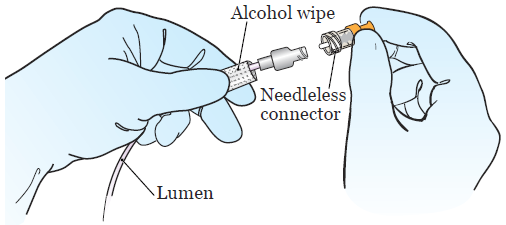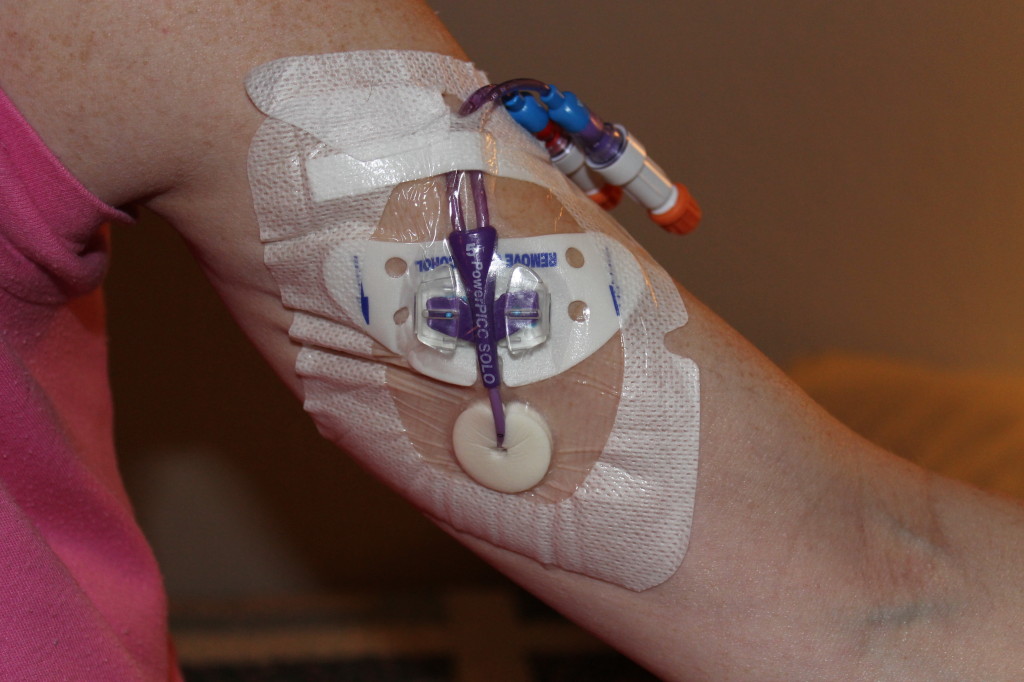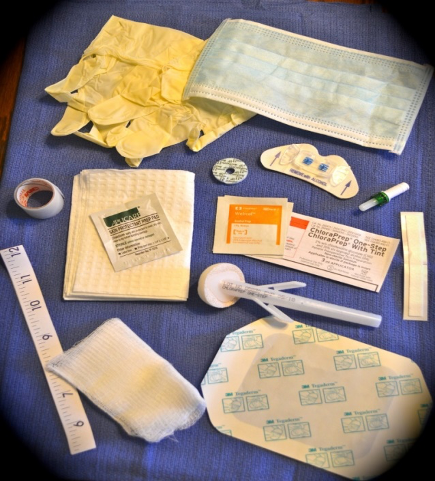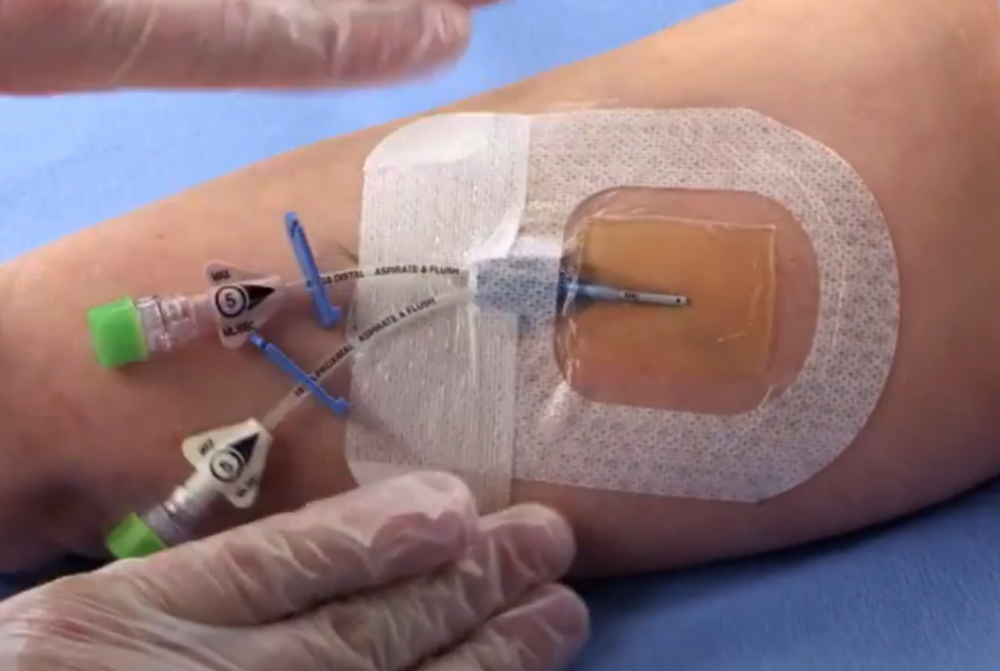central line dressing change how often
After some practice it will get easier. If you have a transparent bandage dressing change it every 7 days or more often if instructed.
If you have a transparent bandage dressing change it every 7 days or more often if instructed.

. This includes gauze under a transparent. If you have a gauze dressing change it every 2 days. Central Line Dressing Change Kit With Chloraprepdefault Title In 2022 Central Line Changing Kit Medical Supplies Check chart for allergies noting tape allergies.
Free 2-Day Shipping with Amazon Prime. The dressing changes allow a more detailed site inspection and cleansing of the skinsite. Category II Replace dressings used on short-term CVC sites at least every 7 days for transparent.
Peripherally inserted central catheter - dressing change. People admitted to intensive care units and those with chronic health care problems often require long-term vascular access. We classified the time intervals between dressing changes as short 2 - 5 days in the more.
Four of the studies included cancer patients and one included patients in an intensive care unit. Shop Save Now. In addition to inserting the central line properly healthcare providers must use stringent infection control practices each time they check the line or change the dressing.
Order Today Save. A peripherally inserted central catheter PICC is a long thin tube that goes into your body through a vein in your upper arm. Replace gauze dressing every 48 hours Category II Catheter Site Assessment For redness site tenderness pain or exudate every shift Category IB Assess dressing integrity.
This includes gauze under a transparent. Change gauze dressing every 2 days clear dressings every 7 days and more frequently if soiled damp or loose. You should change the dressing about once a week.
If you have a gauze dressing change it every 2 days. Central venous access devices. Every 2 days for gauze dressings Every 7 days for transparent dressings And whenever dressing becomes damp loosened or soiled Use aseptic technique.
Perform catheter site care with chlorhexidine at dressing changes. Dressing changes for central lines should occur every 5 to 7 days with a transparent dressing or every two days with a gauze dressing. If you have a gauze dressing change it every 2 days.
You will need to change it sooner if it becomes loose or gets wet or dirty. Patients who get a. If you have a transparent bandage dressing change it every 7 days or more often if instructed.
Change gauze dressing every 2 days clear dressings every 7 days and more frequently if soiled. Ad Browse Our Huge Selection Of Discount Wound Dressing Products. Ad Medex Supply Wound Care.
High Quality Wound Care Supplies. Ad Save on picc line dressing. Perform catheter site care with chlorhexidine at dressing changes.
This includes gauze under a transparent. Flush the line gently see. The care of a central line includes routine inspection and dressing changes.
Replace dressings used on short-term CVC sites every 2 days for gauze dressings.

Central Line Dressing Change Tutorial Youtube

Picc Dressing Change Peripherally Inserted Central Catheter For Nurses Youtube

Peripherally Inserted Central Catheter Picc Care Instructions

About Your Peripherally Inserted Central Catheter Picc Memorial Sloan Kettering Cancer Center

What Is A Picc Line Infusion Solutions Inc

Picc Line And Midline Catheter Care Vascular Wellness

Dressing A Central Line Properly Maimonides Emergency Medicine Residency

Dressing A Central Line Properly Maimonides Emergency Medicine Residency

Dressing A Central Line Properly Maimonides Emergency Medicine Residency

Central Line Dressing Change Nursing Skills Youtube

Nurse Led Picc Line Study Examines Occlusion Rates Consult Qd

112 Central Venous Access Devices Eviq

Dressing A Central Line Properly Maimonides Emergency Medicine Residency

8 10 Iv Site Dressing Changes Clinical Procedures For Safer Patient Care

Picc Dressing Change Peripherally Inserted Central Catheter For Nurses Youtube

8 8 Flushing And Locking Pvad Short Midlines Cvads Piccs Percutaneous Non Hemodialysis Lines Clinical Procedures For Safer Patient Care
